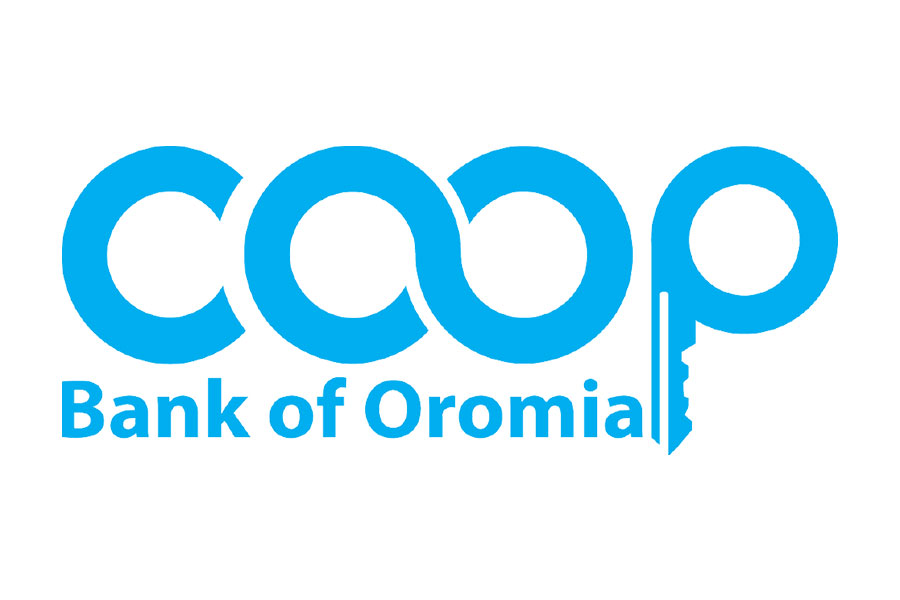
Viewpoints | Jun 17,2023
It was Nursema Mohammed's third visit to the Wereda 1 Bureau of Arada district within the week. He keeps getting the tedious justification of system shutdown for not getting service. He wanted to make monthly rent payments for a city-owned shop, which is processed through a capital-wide network.
Outside the gated compound, the 50-year-old shoe vendor stood frustrated with the passing day and their unprecedented consequences.
"I'm hoping there are no penalties," he told Fortune.
With business slower than usual, he is oversensitive about additional costs. In the wake of recent service interruptions plaguing the budding digital landscape, Nursema is concerned about the practicality of the ambitious initiative.
"If the system is not working, they should be understanding," he noted.
Nursema's struggle reflects broader challenges in the e-governance system. The problem persists halfway across the city, in Wereda 2 NifasSilk Lafto district when trying to renew a business license after the shutdown of the nationwide e-trade system for a week.
Taxi driver Tesfaye Bekele has also been frustrated. He refused to pay nearly five times the amount for renewals of 100 Br after being told that the system was down and he would have to go to nearby internet cafes.
"I'm not spending a full day's earnings," he told Fortune.
Tesfaye is one of the 470,000 licensed business people in the capital. While he managed to find a way around the 500 Br payments after going to the Trade Bureau for two consecutive days, he claims there was no technical failure to begin with.
"System failure is an excuse for wanting to remain idle," he expressed his suspicions.
The Ministry of Trade & Integration released a statement last week that indicated that the e-trade system, an electronic platform that provides almost 16 services on business licenses nationwide, had been down due to external causes outside its control. This comes amidst a sweeping reform under the project banner 'Digital Ethiopia 2025' that has knocked public services.
The strategy aspires to build an infrastructure that enables the creation of a digital ecosystem with increased interactions and integrated systems across several sectors like e-governance, e-commerce and national identifications. Propelling the country into the digital age and leveraging technology for economic and social development is not without its challenges.
Ethiopia ranked 179th from 193 countries last year in the e-government Index by the UN. While the country had a marginally better 163 ranking in the e-participation measure, reliability, accessibility and consistency are some of the key components evaluated by the index. Persistent issues of adequate digital literacy and professional dereliction often prompt the infamous "the system is down" utterances from civil servants.
Jirata Nemera, the head of licensing and registration at the Ministry, disclosed that a power outage was responsible for the nationwide shutdown of the e-trade system, requiring minor repairs for restoration. While acknowledging the need for better integration with other bureaus to enhance overall service provision, he emphasised that the system's restoration during the week removes any excuses for not servicing customers.
Jirata also revealed that several key integrations are nearing completion, signalling the Ministry's efforts. Despite previous rounds of training, he acknowledged that digital literacy remains a challenge among public servants. He outlined the Ministry's commitment to ongoing training to enhance digital capacities, with supervisors regularly monitoring staff progress in digital literacy.
"Training remains part of our short, medium, and long-term plans," he told Fortune.
One of the critical concerns—digital literacy— was addressed during a discussion at Haile Grand last week. Binaym Mikru, head of the Addis Abeba Trade Bureau, highlighted the exploitation of citizens due to a lack of proper skills, which results in frustration among customers. However, he emphasised the need to continue replacing manual services with digital alternatives.
"We know that some of our people exploit the citizenry," he said.
The issue was echoed by Adem Nuri, head of the capital's revenues bureau. Responding to public outcry over poor customer service and reports of taxpayers being subjected to alleged requests for bribes Adem noted the importance of further automation of services provision, revealing a burning necessity to remove human interference from most of the tax authority's services.
"E-governance is the only way forward," he underscored.
He revealed that the e-tax system, currently applied to the bottom third of taxpayers in Addis Abeba, would be expanded to include higher taxpayers soon, beginning at five branches.
Despite a national push for digital reforms, a glaring deficit in knowledge persists among civil servants, contributing significantly to service disruptions. The last Global Competitiveness Index, which had digitisation as one of its primary pillars, ranked Ethiopia 112th from 128 countries on a scale concerning digital skills among the population.
Sewnet Ayele, communication director of the Trade Bureau, acknowledged the need to improve skills to prevent the cessation of services for minor technical failures as Addis Abeba Transitions into a 'smarter city'.
"There is a ceaseless training of staff in digital tools," he told Fortune.
Sewnet attributed last week's disruption of services to a nationwide issue which was out of the Bureau's hands. He indicated plans to vet through districts and wereda employees that are subjecting urbanites to unnecessary hassles under the guise of a system shutdown.
For Deputy Mayor Tiratu Beyene reports of an impending reshuffle to the City Administration's labour force, underscore the impact of a series of examinations carried out and the role of impending digitisation.
"Digital takes centerstage in improving service," he stressed.
Ethiopia's profile on information and communications development by USAID reveals an interesting combination of measures. High scores on mobile 3G network infrastructure coverage (94) while it remains on the low spectrum in ICT adoption at 20.14 on a scale of 100.
The private sector weighs in, indicating the need to create integrated systems that enable multiple points of engagement to fast-track Ethiopia's digital transformation across several sectors.
Headquartered in Dubai, Xoka It Solutions has provided software solutions to multiple clients across the public sector, which include the Addis Abeba Mayor's Office, the Federal Housing Corporation and the Ministry of Mines.
While championing the transformation from paper-based to electronic as "a major step in the right direction", Brook Berhane, general manager, anticipates significant work ahead to improve the skill sets of service providers. Although digital literacy may take a long time, Brook states "the process can be hastened."
He points out that acceleration in the provision of digital services over the past five years does not have to translate to constant failures due to the availability of infrastructure supervising software options. Brook underscores the availability of digital solutions to most of the problems of service disruption in the public sector.
"Much time is wasted trying to identify the source of the problem," he noted, "which can be aided by software."
Ethiopia's digital horizon, which received a 350 million World Bank boost for digital IDs in two weeks, rests on the introduction of state-of-the-art digital infrastructure operated by a literate public servant and the wider community. It has signalled significant hope for the ecosystem of companies vying for market share in the budding digital infrastructure.
Abenezer Feleke, head of Communications at the project, points to the underdevelopment of infrastructures in connectivity at remote areas and the lack of literacy levels as enduring bottlenecks. Despite the difficulties of connectivity, the project has been utilising offline registration in remote areas and massive collaborative campaigns with commercial banks, managing to register around four million people in less than two years, a modest achievement compared to its 90 million objectives.
"There is a clear decline in digital literacy as one moves out from urban areas," he told Fortune.
Abenezer believes a personal data protection proclamation that recently received a nod from the Council of Ministers will fast-track the realisation of the project. However, a benefit-centric approach by working with partners is vital to onboarding an increasing number of people.
The project dubbed Fayda is central to enabling several financial services like non-collateral loans, reliable credit scores and expanding identification as Ethiopia ventures deeper into the digital realm.
Last month's AfricaNenda report reveals modest progress in the development of inclusive digital payment systems in Ethiopia, which has one national switch operator that obtained over 329 million Br in revenues.
Financial services have made the most progress with about 32 commercial banks in the country offering mobile money services while four licensed payment instrument issuers and six system operators are availed.
Yigermal Meshesha, marketing and business development manager at Ethiopia's first private payment instrument issuer, Kacha Digital Financial Service. He observes that a sustained power source, a reliable network and a data centre need to combine to enable consistent and reliable service in the digital realm.
Yigermal underscored the need for public-private partnerships to improve service reliability while mentioning potential benefits from the use of Artificially intelligent tools like chatbots to improve customer services. The need for human interactions could be managed through call centres and customer service desks, according to him.
"Government can't be expected to do everything," Yigermal emphasised.
The need for digital literacy becomes apparent going forward. Early exposure incorporated in the education system and training on computer maintenance emerge as crucial components, according to industry insiders.
Endashaw Tesfaye, an expert from the United Nations Capital Development Fund (UNCDF), explained that the inability to deal with user needs is much more a result of underdeveloped customer service than literacy.
"Proper redress mechanisms play a major role in the adoption of technology," he said.
The expert referred to the pending realisation of the digital ID as a major achievement in Ethiopia's digital venture while also noting the necessity of fast-tracking the body of laws around data protection. As a former deputy CEO of Moss ICT Consultancy, Endeshaw points out the need to create easy-to-access communication channels for customers to put forth complaints and urgent issues to management as part of an inclusive system.
"Awareness creation plays a critical role in its success," he stressed.
Ethiopia's journey into the digital age is commendable. Creating a digital ecosystem prompts a critical examination, emphasising the need for resilient infrastructure, contingency planning, and effective communication during disruptions.
PUBLISHED ON
Dec 23,2023 [ VOL
24 , NO
1234]

Viewpoints | Jun 17,2023

View From Arada | Sep 08,2024

Radar | Jan 15,2022

View From Arada | Dec 04,2020

Sponsored Contents | Jan 17,2022

Editorial | Jun 07,2020

Fortune News | Jul 03,2021

Fortune News | Aug 20,2022

Commentaries | Dec 04,2021

Fortune News | Apr 22,2023

Dec 22 , 2024 . By TIZITA SHEWAFERAW
Charged with transforming colossal state-owned enterprises into modern and competitiv...

Aug 18 , 2024 . By AKSAH ITALO
Although predictable Yonas Zerihun's job in the ride-hailing service is not immune to...

Jul 28 , 2024 . By TIZITA SHEWAFERAW
Unhabitual, perhaps too many, Samuel Gebreyohannes, 38, used to occasionally enjoy a couple of beers at breakfast. However, he recently swit...

Jul 13 , 2024 . By AKSAH ITALO
Investors who rely on tractors, trucks, and field vehicles for commuting, transporting commodities, and f...

Oct 11 , 2025
Ladislas Farago, a roving Associated Press (AP) correspondent, arrived in Ethiopia in...

Oct 4 , 2025
Eyob Tekalegn (PhD) had been in the Governor's chair for only weeks when, on Septembe...

Sep 27 , 2025
Four years into an experiment with “shock therapy” in education, the national moo...

Sep 20 , 2025
Getachew Reda's return to the national stage was always going to stir attention. Once...